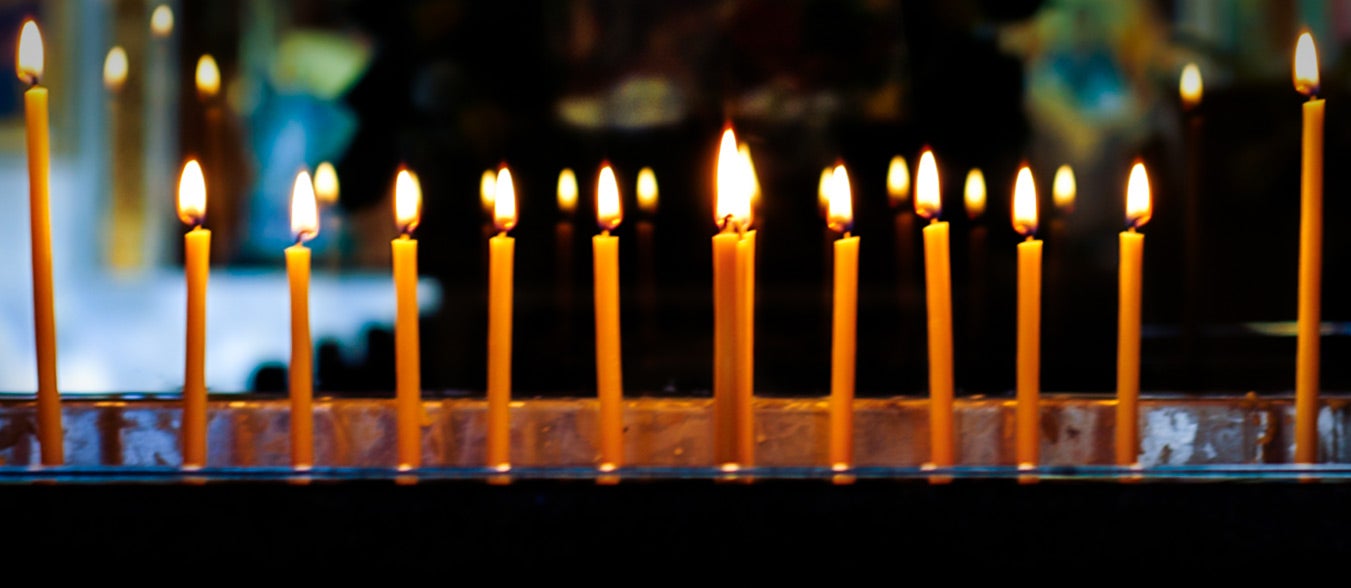My Beloved Ones,
This week’s Gospel begins just after our Lord comes down from Mount Tabor. There was the peaceful moment when He instructed Peter, James, and John to tell no one of His Transfiguration until after His Resurrection. Now, however, at the bottom of the mountain, there is great noise. Christ finds a crowd waiting for Him, and a man falls at His feet, saying, “Lord, have mercy on my son, for he is an epileptic and he suffers terribly; for often he falls into the fire, and often into the water. And I brought him to your disciples, and they could not heal him” (Matthew 17:15-16). Moments after speaking to Moses and Elijah, Christ is upset with the lack of faith all around Him: from the remaining nine Disciples, from the boy’s father, and from those the crowd.
It is for this reason that He says, “O faithless and perverse generation, how long am I to be with you? How long am I to bear with you? Bring him here to me” (Matthew 17:17). After He miraculously heals the boy, Jesus is privately approached by the Disciples who ask, “Why could we not cast it out? (Matthew 17:19). Jesus is very clear with them: “Because of your little faith. For truly, I say to you, if you have faith as a grain of mustard seed, you will say to this mountain, ‘Move from here to there,’ and it will move; and nothing will be impossible to you. But this kind never comes out except by prayer and fasting” (Matthew 17:20-21).
My dear Brothers and Sisters in Christ, let us consider the Feast of a servant of God who shows this kind of faith. I am, of course, speaking of the Theotokos & Ever-Virgin Mary. When the Archangel Gabriel announced God’s intention to make her part of His plan for the salvation of the world, Mary showed faith, and accepted God’s Will. Despite her uncertainty, she put away her doubts through faith. And just as a mountain moving is a great mystery to our natural world, the mystery of the Virgin Birth was accomplished, and so was our salvation, through Christ’s Incarnation, Death, and Resurrection.
After our Lord entrusted the care of His mother to John the Beloved Disciple, the Theotokos followed John to Ephesus, before returning to serve the Jerusalem Church. Now, as then, the Archangel Gabriel returned to tell her that her time was close at hand. Unlike so many weak and sinful human beings who fear death, armed with her great faith, the Theotokos was instead full of joy, knowing that she would live again with her Son and her God. When she returned home from praying at the Mount of Olives, the power of the Holy Spirit brought to her all the Apostles, who were preaching throughout the world. Mary consoled them, praying for the peace of the world, and offered her spirit to God, just as she had offered her life.
Even after her Dormition, we are offered more examples of faith. Just as he had been absent after the Resurrection, Saint Thomas was not present with the other Apostles at the time of the Dormition. By the time he arrived, three days have passed since her falling asleep. Remembering our Lord’s words to him: “Blessed are those who have not seen and yet have come to believe”, Thomas does not doubt again (John 20:28). Instead, through faith, he asked to be taken to her tomb in the Garden of Gethsemane. However, when the tomb was opened, the Apostles discovered that before she was taken to Heaven, she had been resurrected.
My beloved ones, as we prepare to celebrate this great feast (and so honor all our Marias, Despinas, Panagiotes and Panagiotas) may we continue to pray and fast, so that as true Christians, we may have that small grain of faith needed—not just to move mountains, but live out the Gospel through works of charity, hope, and love. Χρόνια Πολλά!
+SEVASTIANOS
Metropolitan of Atlanta








